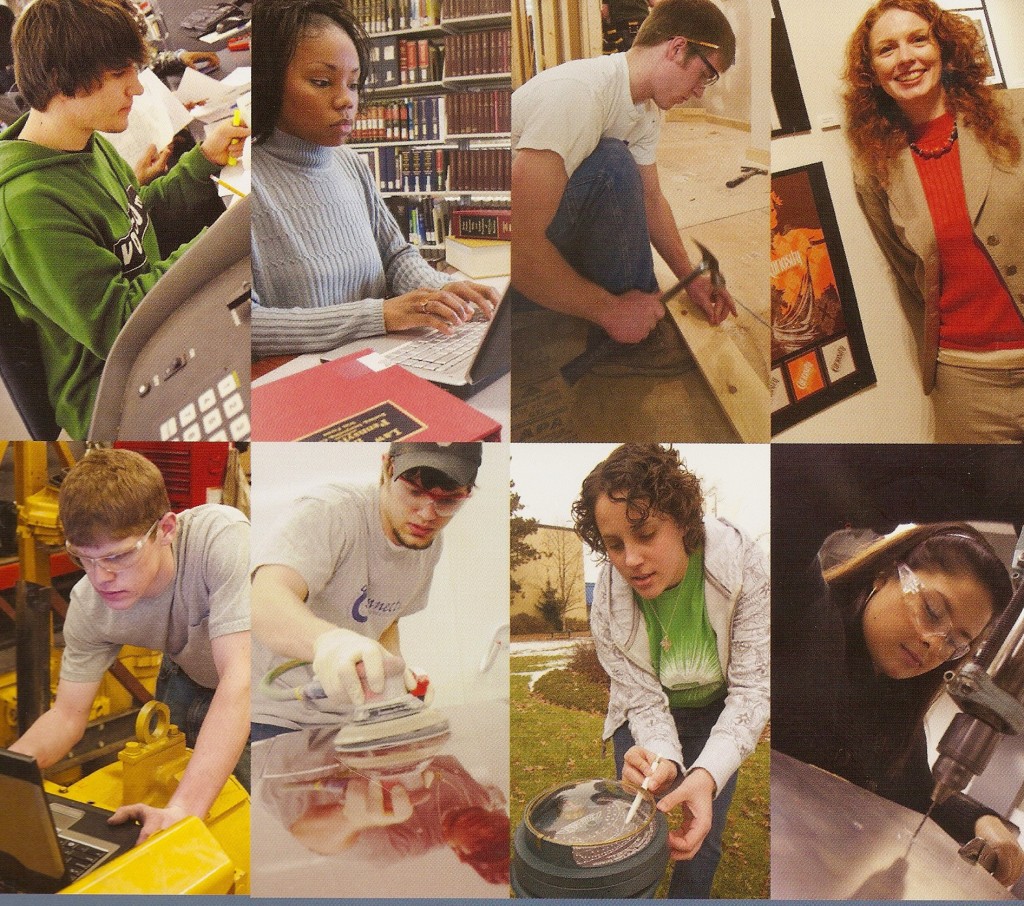
Is your student looking for a hands-on career that pays well but isn’t on your traditional college major radar? With an estimated 31 million skilled trade vacancies by 2020 and a potential oversaturation of IT employees, the following jobs are smart choice for young adults.
HVAC technician. HVAC techs don’t just provide tune-ups to residential heating and cooling systems. Many HVAC professionals work on industrial refrigeration equipment, boilers, heat pumps, and air handling systems. The Advanced Technology Institute reports that HVAC jobs will grow by more than 20% through 2022 and claims the top professionals in the field earn more than $68,900 annually.
Machinist. Creative minds that lean toward problem solving might like a career as a machinist. A machinist repairs or creates large machines and often makes their own tools to get the job done. A high-school diploma and some manufacturing experience can help a budding industrial machinist take home $42,000 each year.
Electrician. Electricians are the men and women who work to ensure that buildings, vehicles, and ships are wired correctly and that that wiring is safe. Earning more than $25 per hour in the early years, an electrician can charge $75 per hour or more as an independent contractor or business owner in less than a decade.
Plumber. Plumbers are the people you call when your toilet, drains, or hot water heater fail to function. But they are also important in construction as these professionals are knowledgeable in everything from drainage to pipefitting and how a building’s design might affect its plumbing system. Plumbers help create blueprints and may work alone or with a team on large projects. With an expected $50,620 salary and 12% job growth through 2024, it’s a career that isn’t going down the drain any time soon.
Brick mason. A brick mason gets to build things with their hands, from mailboxes to courthouses to chimneys. It’s a job that requires heavy lifting, a keen eye for detail, and the ability to follow detailed instructions. There is little room for errors in this job, as a brick mason’s handiwork is literally set in stone. Although many in the industry work as an apprentice instead of undergoing formal education, there are a number of college programs that offer certification in masonry. Brick masons that work for local governmental agencies can earn more than $93,000; the median salary in the private sector is $46,650.
Civil engineer. A civil engineer works on a large scale to create infrastructure plans in towns, at airports, seaports, and along the highways and byways. There are virtually no areas where civil engineers don’t touch. These construction and architectural experts are the ones responsible for keeping tragedy at bay and must understand natural disasters, such as flooding and tornadoes, in order to minimize their impact on the community. Civil engineers can earn up to $100,000 or more depending on location and expertise.
Industrial engineer. An industrial engineer works to increase operational efficiency. This job offers the best of both worlds: the ability to work on-site as well as time in the office. Industrial engineering jobs are expected to grow at a rate of 10% through 2026, according to the Bureau of Labor Statistics. And with a median salary of $84,310, it’s a high-paying career with growth opportunities.
Construction and manufacturing industry experts hope to fill these and other open positions with new workers in the coming years. And each of these industries is adding jobs quickly as Baby Boomers begin to age out of the employment pool. This is good news for young adults is that job growth has a positive impact on the economy today and builds the foundation for tomorrow’s homebuyer. More jobs leads to higher wages, which leads to more people buying homes, which ultimately leads to lower interest rates and more favorable loan terms across the board. Getting in the door to these fast-growing careers now is one sure way to pave the way for a bright financial future.
And believe it or not, there are scholarships available to help you pay for this type of training:
2017 Technicians in Residential Plumbing, HVAC or Electrical Scholarship & 2017 Troops to Trades Training Grants and Scholarships
2017 Skilled Labor Shortage Scholarship
Women in Skilled Trades Scholarship Program
National Housing Endowment Student Scholarships
World Plumbing Council Scholarship Program
American Society of Heating, Refrigerating & Air-Conditioning Engineers Scholarships






